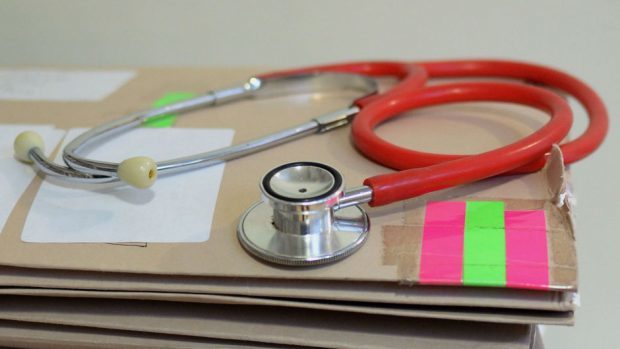A family GP who accepted more than £188,000 in cash and gifts from an elderly patient was “pulling on her heartstrings” to get money out of her, a tribunal has heard.
Dr Andrea McFarlane, 54, was able to pocket £600 a month from the retired teacher by using her “difficulties” at home to encourage her to gift her money, it was claimed.
The GP, who had been going through a divorce, used the cash to pay for household repairs, a birthday present to herself, servicing her car and also on petrol to take her sons to rugby matches.
It is alleged that during a six-year period between April 2008 and January 2014, Dr McFarlane “nurtured” an inappropriate friendship with the widow and “took full advantage in terms of the financial benefit to her.”
Dr McFarlane, originally from Peterculter, admits accepting money from the patient. However, she denies disclosure of confidential information about other patients and refutes claims she received gifts “because of her influence on the patient”.
>> Keep up to date with the latest news with The P&J newsletter
The case is currently being heard by the Medical Practitioners Tribunal Service in Manchester.
The panel has heard Dr McFarlane met the patient in 2003 while working as a senior partner at The Crown House Surgery in Retford, Lincs.
The full extent of the pair’s friendship emerged in 2017 after the patient, now 87, and who has no children suffered a stroke and was moved to a care home. Her nephew discovered dozens of thank you cards and letters from Dr McFarlane as he cleared out the house.
Yesterday, expert witness Dr Georgina Brown told the misconduct hearing: “In my opinion, based on the letter than Dr McFarlane sent to Patient A saying how she could not have coped without the money, this was coercing the patient to give money by almost pulling on the heartstrings of the elderly patient. In the letter she says ‘without your help, I would not have managed to get a new cooker without difficulties’.
“Dr McFarlane’s actions could be interpreted as encouraging the patient to give more money and give more time to her. The death of Patients A’s husband could have led to social isolation and the loss of social support – this may have made her particularly vulnerable.”
She added that doctors must declare gifts and keep a register which would be disclosed to colleagues.
Inquiries revealed regular monthly debits of £600 to the doctor, including 92 debits over an 18-month period.
And the panel heard that one thank you note read: “You mentioned, would it be better if you changed doctor? Yes of course it would, as a doctor should not have a close relationship with a patient. We need to be careful as people may not understand our close friendship, I have grown to love you as my friend which has nothing to do with me being your doctor.
“The governing bodies such as the GMC are very strict about these things as a patient should be protected from a doctor taking advantage.”
The hearing continues.
